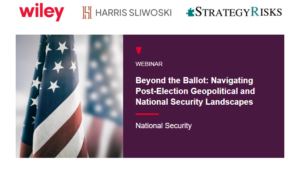No More DIY Law, Please
Have you ever made a major business or life decision based on advice from a friend, a blog, or a DIY guide, only to find out later that it was flawed?
Last week provided me with three compelling examples of why lawyers are indispensable in making any legal decisions. In this post, I’ll delve into these situations and explain why consulting with an attorney can save you from costly mistakes and ensure your legal decisions are sound.
Love is Blind — The Prenuptial Agreement Dilemma
The first two examples came from a good friend who asked me legal questions related to Love is Blind UK. Believe it or not.
My friend explained that one couple, Freddie and Cat, did not marry due to tensions surrounding a prenuptial agreement. Freddie had asked Cat to agree to a prenup agreement, which caused discomfort among Cat and her friends. They feared that a prenuptial agreement would mean that, even if the marriage thrived, Cat would receive nothing if Freddie passed away after twenty or thirty years.
I know almost nothing about English prenuptial laws—or prenuptial laws globally—but I am certain that just about any family lawyer in England could have structured their prenuptial agreement to offer Cat an increasing percentage of Freddie’s assets based on the length of their marriage. Instead, they made decisions affecting major life events based on poor legal analysis because no one consulted a lawyer.
Love is Blind — The Mortgage Payment Misunderstanding
Another couple, Tom and Maria chose not to marry due to disagreements on gender roles and financial responsibilities. Maria was reluctant to contribute to Tom’s mortgage payments, fearing she might end up with nothing from those payments in a divorce.
This concern was misplaced. Any competent UK real estate lawyer could have crafted a contract ensuring that if they divorced or Maria stopped contributing to the mortgage, Tom would owe her the amount she had contributed, potentially with interest or adjustments for imputed rent. Instead, they too made a major life decision based on flawed legal assumptions and a lack of professional advice.
The China NNN Agreement Nightmare
Closer to home is a case involving a China NNN Agreement. And by sheer coincidence, the company seeking my China legal advice is based in the UK.
The UK company contacted me for a China Product Development Agreement and mentioned they already had a signed China NNN Agreement. Since most China NNN Agreements are either poorly drafted or completely unnecessary, I offered to review their NNN Agreement for free. They sent it to me, noting that it was “based on content from the China Law Blog.”
My immediate reaction was skepticism. From experience, documents based on blog content—even this blog’s content—are almost invariably flawed.
The China NNN Agreement Review
Not surprisingly, the China NNN Agreement from the UK company was inadequate. Although it had incorporated some of our suggested practices, it had been modified enough—likely at the urging of the Chinese manufacturer—to render it ineffective. I wrote the potential client the following regarding their NNN Agreement:
I briefly reviewed the NNN Agreement and though it may be technically enforceable, it does not effectively protect you.
It specifies that both Chinese and English versions are valid, but in the event of a dispute, the English version shall prevail. This dual-language setup will complicate any legal proceedings and will double or triple the costs associated with resolving disputes. Arbitration will require you retain a lawyer fluent in both languages, comprehensive analysis of the text in both languages, and how the two languages interact to create the relevant contractual language for the arbitrator. This will increase time and costs.
Moreover, it stipulates that arbitration should be conducted in English but governed by Chinese law. This requirement limits the choice of arbitrators to those who are not only experts in Chinese law but also fluent in English, reducing the pool of suitable arbitrators and almost certainly dooming you to a Chinese national as your arbitrator. This too will escalate costs and complicate.
Your having chosen arbitration and not litigation is something we never do with our NNN Agreements because doing so neutralizes the most powerful provision in the contract – its liquidated damages provision. Liquidated damages clauses are powerful because they allow for quickly freezing the Chinese company’s bank account. Chinese companies realize this and fear it and so they don’t breach. An arbitrator cannot freeze a bank account.
It may be possible to take the arbitrator’s decision to freeze your Chinese manufacturer’s assets to a Chinese court for enforcement, but I doubt it. And even if this is theoretically possible, doing this will also greatly increase your costs as it will essentially require you to try two cases in two different venues in China and would likely more than double the costs and extend the timeline.
And no matter what, you will be facing something we never allow and that is going before a Chinese court with an English language document. But it’s even worse than that in that it isn’t really just an English language document, it’s a vague and strange combination of English and Chinese.
Unfortunately, the NNN Agreement you have is inadequate, offering little to no protection. It is poorly drafted and likely unenforceable. I hope your Chinese manufacturer will allow us to clean it up with powerful NNN provisions in the Product Development Agreement.
Blog Content Isn’t Enough
In Repeat After Me: ChatGPT is NOT My Attorney, I explain why relying on blog content is problematic. Our blog provides general advice only and is not a substitute for professional legal counsel. We emphasize that our blog should not replace professional advice and our disclaimer states: The purpose of the Websites is to provide general information only. The Websites are intended for communication purposes, not for solicitation to provide legal services. The information on the Websites does not constitute or contain formal legal advice or solicitation of legal services.
Many of our posts use modifiers to clarify that what we are saying is generally true, but not always. Still, I often hear about people acting based solely on one of our blog posts.
Just to be clear, you should never make a legal decision based on what you read on the internet.
Conclusion
Timely engaging a lawyer can help structure your life and your company’s future to your advantage. Whether drafting prenuptial agreements, negotiating financial responsibilities, or ensuring international agreements are robust and enforceable, the stakes are too high for DIY approaches based on incomplete or irrelevant information.
Consulting with qualified attorneys allows individuals and businesses to make well-informed decisions, safeguard their interests, and sidestep the pitfalls of inadequate or misunderstood legal provisions. Most importantly, skilled legal guidance helps you strategically structure your legal landscape to maximize your benefits for a favorable future, in marriage and in business.

























